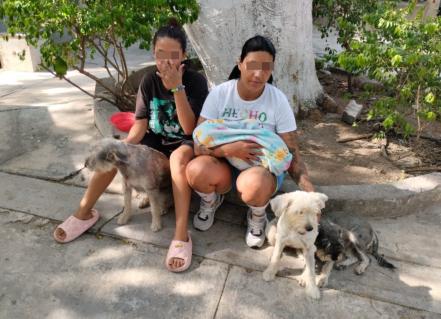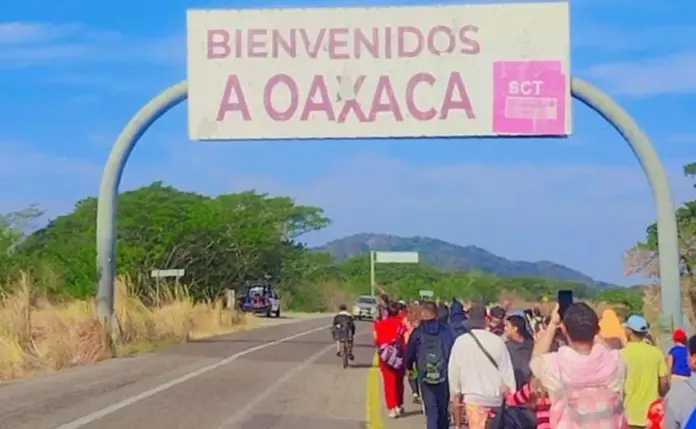
Clinging to a promising future that she sees as increasingly distant, some 3,000 kilometers from Cali, in the Valle del Cauca, Paola Martínez lived the New Year’s celebration for the second time, far from the warmth of her family and practically on the street, without money and in the midst of tribulations.
Last year, she confesses, she had to live the New Year in Honduras, after a long pilgrimage to save her life threatened with death.
“We were three witnesses of a serious crime committed in Colombia, two of them were killed. So my husband, my daughter, who is now 13 years old, and I decided to leave Cali to go to the United States,” she says.
Since Paola Martínez arrived in Tapachula, Chiapas, in January 2024, and settled in the Hermanos en el Camino shelter, founded by the priest Alejandro Solalinde Guerra, in Ciudad Ixtepec, Oaxaca (November of this year 2024), she was the victim of unimaginable and reprehensible events that occurred in neighboring states in southern Mexico such as Chiapas and Oaxaca.
“I have no reason to celebrate the New Year,” she says, while recounting that in the midst of the anguish, that she was detained and sent back to Tapachula more than five times, that her four-month-old baby died of heat stroke in San Pedro Tapanatepec, that her little daughter was raped in Santiago Niltepec and that she, Paola, has a 15-day-old baby, the result of sexual abuse.
Sadness and nostalgia for Venezuela
“What will we celebrate this New Year?” asks Carola Rojas, a Venezuelan mother who travels with five children from the state of Guárico, in the Los Valles region, in central Venezuela, where she ran a small beauty salon to help her husband, an occasional welder of doors and windows.
It is the first time that “the end of the year catches us away from home” and it is natural “that we are overcome by pain, sadness and nostalgia,” far from family, parents, siblings, but “we could no longer stay in Guárico because the Venezuelan economy became very bad. The value of the currency weakened. They pay 180 Mexican pesos a day there. It is not enough,” she says.
The children, aged 17, 16, 14 and seven, stopped studying and the youngest, aged two, lives without realising the tragedy of the migrant: walking on the hot asphalt, in the rain, with the sun burning the skin and the cold wind leaving respiratory illnesses, as well as the risk of being run over on the roads, or drowning in shipwrecks in the Pacific.
Hunger, deportations and violence. The ordeal that thousands of migrants go through to cross Oaxaca
“The ‘maña’ stopped us from travelling”
Estephany Juliet, who is accompanied by her husband and her four-year-old son, says that if she had felt the spirit to join in the New Year’s Eve celebrations, she would surely have attended to taste a paella with punch, prepared by the staff of the migrant shelter, founded by the priest Alejandro Solalinde.
“My husband is a man who works as a bricklayer or farm laborer to earn a living. We were coming with our four-year-old son on the bus from Tonalá, Chiapas, and when we got to the bus station in Juchitán, some boys stopped us and told us that they were “the gang” and that we should go with them if we didn’t want to get into trouble.
“Since we didn’t have much money, they took about 600 pesos from us and let us go. Thank God, we are fine. We are going to wait a few days and then we will continue onward, because we want to get to Houston, where relatives are waiting for us to help us find a job, even though Mr. Trump says that he will bring us back,” she confesses hopefully.
While at the Hermanos en el Camino shelter, some migrants with knowledge or experience in the culinary arts prepared since the afternoon of December 31 the paella composed of rice and chicken, pork and beef, as well as the traditional punch, about 200 migrants arrived on foot to San Pedro Tapanatepec, the first municipality of Oaxacan territory, on the border with Chiapas, who know nothing about celebrations, dinners or festivities and for whom their priority on the first cold night of this year 2025 was to find a suitable place to spend the night.
Source: oaxaca.eluniversal




